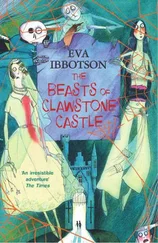Ibbotson, Eva - Magic Flutes
Здесь есть возможность читать онлайн «Ibbotson, Eva - Magic Flutes» весь текст электронной книги совершенно бесплатно (целиком полную версию без сокращений). В некоторых случаях можно слушать аудио, скачать через торрент в формате fb2 и присутствует краткое содержание. Год выпуска: 2011, Издательство: Macmillan Publishers UK, Жанр: Старинная литература, на английском языке. Описание произведения, (предисловие) а так же отзывы посетителей доступны на портале библиотеки ЛибКат.
- Название:Magic Flutes
- Автор:
- Издательство:Macmillan Publishers UK
- Жанр:
- Год:2011
- ISBN:нет данных
- Рейтинг книги:3 / 5. Голосов: 1
-
Избранное:Добавить в избранное
- Отзывы:
-
Ваша оценка:
- 60
- 1
- 2
- 3
- 4
- 5
Magic Flutes: краткое содержание, описание и аннотация
Предлагаем к чтению аннотацию, описание, краткое содержание или предисловие (зависит от того, что написал сам автор книги «Magic Flutes»). Если вы не нашли необходимую информацию о книге — напишите в комментариях, мы постараемся отыскать её.
Magic Flutes — читать онлайн бесплатно полную книгу (весь текст) целиком
Ниже представлен текст книги, разбитый по страницам. Система сохранения места последней прочитанной страницы, позволяет с удобством читать онлайн бесплатно книгу «Magic Flutes», без необходимости каждый раз заново искать на чём Вы остановились. Поставьте закладку, и сможете в любой момент перейти на страницу, на которой закончили чтение.
Интервал:
Закладка:
‘Not to mention the bad language,’ put in the Rhine-maiden.
Tessa looked round at the stage-hands, old friends now looking at her with the cowed respect she had so often encountered in the past. Not seeing her, seeing some shape, some label to be revered or hated according to their creed.
Swallowing down the lump in her throat, she said, ‘Herr Witzler, I have lost my home. I have nothing left except my work. Must I lose that also?’
Jacob shrugged wearily and flinched as his ulcer expressed its views on what was going on.
‘It is impossible, Your Highness. There are three hundred years of privilege which cannot be wiped out. The position of your family . . . your rank. I’m sorry, your work is excellent,’ said Jacob, ‘but you cannot remain with us.’
‘I see.’
Tessa put down her can of milk, her basket of eggs. Instinctively she had moved upstage and now, turning, commanded them all. When she spoke it was quietly, but the children of Schönbrunn had been taught not only to walk down a staircase, but also to be heard at whatever distance and in whatever place they chose.
‘You make me ashamed,’ she said, and the quiet voice cut like a whip. ‘Deeply and bitterly ashamed. All of you.’
They stared at her. Klasky put down his score. A stage-hand stepped backwards as though to escape the anger in her face. Was this the little waif, the ever-willing girl who would do anything for anyone?
They were not to blame for their amazement. No one here had seen the Emperor of Germany hopping round the courtyard, nursing his bitten leg after he had shot the last auroch left in the forests of Pfaffenstein. No one had watched the procession of stretchers carried up from the straw barns of the outlying farms, bringing the wounded men to be nursed inside the castle, at the command of the thirteen-year-old princess.
‘I believed what you said,’ Tessa’s low implacable voice went on. ‘I believed what Herr Witzler said about music making everybody equal. I believed Herr Klasky when he rehearsed the prisoners’ chorus in Fidelio . . . when he made them sing that chorus for four hours because what Beethoven said in it about freedom and brotherhood was sacred. I actually believed him. And now . . . in this production. In The Magic Flute.’ She looked at Witzler, then at the old bass who sang the High Priest, Sarastro, who was staring at her with an open mouth. ‘Only two days ago, when Herr Berger gave up his lunch and his tea to make that recitative perfect; that part where he says that Tamino is more than a prince because he is a man . . . Dear God, when you said that that was the keynote of the opera, I believed you.’
No one spoke. A door opened at the back of the hall as Farne slipped in to greet the company. No one heard him, no head turned. There was nobody in the theatre except that slight, pale, implacable figure accusing them.
‘I believed it. I believed it all,’ said Tessa. ‘That you served music, all of you, because it was above pettiness and rank. Because it makes everybody one: rich and poor, sick and well. Because it comes to us from God. I believed it – but not you. Not one of you.’
She paused and momentarily passed a hand across her eyes.
‘The Princess Lichnovsky knelt to Beethoven; she knelt to beg him to give back the score of Fidelio which the Viennese had sneered at. She knelt, and she was right to kneel. Well, I won’t kneel for my right to work. I won’t kneel because I don’t kneel to hypocrites and time-servers and snobs !’
Silence. Total, unbroken silence as Tessa bent to pick up her basket, her can of milk. Then, suddenly, it began. The stage-hands started it, clapping first; then stamping and shouting as if the theatre was packed to the roof, and the orchestra banging on their music stands and Boris, dabbing his eyes with the end of his muffler and leading the yells of ‘Bravo!’ and ‘Bis!’
It was left to Raisa to bring some sense into the proceedings. Ovations were all very well but they belonged, in general, to her.
‘’er ’ighness is being perfectly correct,’ she stated. ‘In art all is being of equalness.’ She pushed aside the people now crowding round Tessa and said firmly, ‘In zis bodice ’ighness, I cannot zink. I cannot zink even an ’igh C, and an ’igh F you can forget absolutely it.’
Tessa finished blowing her nose on Jacob’s handkerchief and turned a radiant countenance on the soprano. ‘Yes, Frau Romola. I quite understand, Frau Romola. If you will give me the bodice now, I can have it ready for this evening. It only needs a gusset . . .’
9
The forest that stretched away on the spur behind the castle might have been invented by the Brothers Grimm. Pines and ferns, larches, moss, little rills of crystal water, shafts of sunlight on silvered cones, the tang of resin . . .
And in a clearing the feathers of pigeons drifting to the ground and the scent of gunpowder, as Guy provided for his guests such limited sport as the month of June offered. In felden green with silver buttons, in lederhosen or field uniforms, all those of his guests who could walk and had not preferred fishing or billiards were in the forest cheerfully pursuing birds whose lowly status did not prevent them from being amazingly difficult to hit.
Guy, sharing a hide with Prince Maximilian and despatching with accuracy but relatively little enthusiasm such pigeons as fell to his lot, found himself an unwilling recipient for Maxi’s low-voiced confidences.
‘Jolly good party, this,’ said Maxi. ‘Everyone says what a good party this is. Everything laid on as it should be.’
Temporarily exhausted by so much conversation, he aimed and brought down his bird. That he should have left the dogs behind merely because they were unnecessary for this type of sport was not to be expected. Now he sent off the pointer, directed the labrador to a runner in the bushes, whistled the water spaniel out of the stream and spoke a manly word of sympathy to the wolfhound rendered gloomy by the lack of serious booty.
‘I’m glad you’re enjoying it.’
In the distance the Countess Waaltraut, who had been steering her mother’s Bath chair between the larches in relentless pursuit of Guy, was brought to a halt by the silver ribbon of a stream and stood, melancholy and baulked, staring at the trees which hid him from her sight.
‘Pity Putzerl couldn’t come. Tessa, I mean.’
‘Does she care for shooting?’
‘No, she doesn’t,’ said Maxi, frowning down at his half-grown setter bitch. ‘She’s a jolly good shot, though. Her father taught her. I taught her too, at Spittau. Had her out in a punt when she was six. You wouldn’t believe it,’ said Maxi earnestly, ‘but she can imitate a mallard like no one I’ve ever met. Got a perfect ear. You don’t need a call duck in the boat if you’ve got Putzerl. It’s uncanny. It’s all that music she goes in for, I suppose.’
He sighed. His mother would not be at all pleased about this business with the opera company. ‘And the dogs,’ he continued, taking the bird out of the pointer’s mouth and looking with surprise at the dead squirrel brought in by the labrador. ‘You wouldn’t think it, because she’s so little and quiet, but they’d do anything for her.’
‘Really?’
Guy’s cool and slightly contemptuous tone was lost on Maxi who patted the pointer, commended the labrador, told the spaniel to stay . . . and aimed once more and hit once more, sending the whole cavalcade in motion once again. ‘They’re trained for the water, of course,’ he commented. Then continued, ‘It’s all this art and music I worry about. She’ll grow out of it, I suppose?’
‘Do you want her to?’
Читать дальшеИнтервал:
Закладка:
Похожие книги на «Magic Flutes»
Представляем Вашему вниманию похожие книги на «Magic Flutes» списком для выбора. Мы отобрали схожую по названию и смыслу литературу в надежде предоставить читателям больше вариантов отыскать новые, интересные, ещё непрочитанные произведения.
Обсуждение, отзывы о книге «Magic Flutes» и просто собственные мнения читателей. Оставьте ваши комментарии, напишите, что Вы думаете о произведении, его смысле или главных героях. Укажите что конкретно понравилось, а что нет, и почему Вы так считаете.












